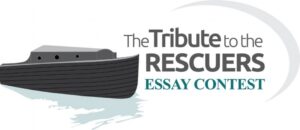
Follow these links to view an animated map, and read two articles about the Holocaust and moral courage:
Animated Map: Introduction to the Holocaust – United States Holocaust Memorial Museum
Article: Introduction to the History of the Holocaust – United States Holocaust Memorial Museum
Article: The Complexities of Courage – Echoes & Reflections
The rescuers featured below exemplify moral courage.
The Danish People Save their Jewish Neighbors
Irena Sendler and Saving Children from the Warsaw Ghetto
The White Rose: Brave German Youth Resistance Pamphleteers
Japanese Diplomat Chiune Sugihara
Miep Gies: Anne Frank House
Oskar Schindler, a flawed German Rescuer
Raoul Wallenberg: Swedish Diplomat Helped Save Hungarian Jews
Choose and research two individuals or groups that demonstrated moral courage in an historic or current event. One must be from the Holocaust. We encourage you to select two examples beyond the well-known rescuers cited above and those already well-known. There are many worthy subjects to research! The idea is to find examples of moral courage in different historical contexts.
Be sure to discuss the topic with your teacher. Your topic may include individuals or groups in historical events such as:
Rescuers of victims of the Holocaust
Civil Rights movement activists
Literary subjects dealing with moral courage
A historical topic covered in your classroom
Genocide in Rwanda, Bosnia, Cambodia, Darfur, Sudan, Kenya, the Congo, Zimbabwe or Chechnya
You may choose to explore an area not mentioned here – any persons or groups from history that have shown great moral courage. If you have questions, please direct them to info@ihene.org
Using the Holocaust as the historical backdrop, this essay requires that students:
Provide a definition of moral courage.
Choose two examples of moral courage: one from the Holocaust and another from a different time/event.
Explore the chosen historical event/example and provide a context for each example chosen. Use multiple, reputable sources to gain a balanced and fuller understanding of the subject.
Demonstrate how the chosen individual/group took a stand against social injustice and exhibited moral courage.
Conclude with “What now?” Examples questions to ask yourself: What about this example speaks to you? Why is this example important? Even though you may not experience life under tyranny or in a war zone – how might the lessons of your chosen example be applied in your own life, school, or family? How can these lessons improve your life and those around you?